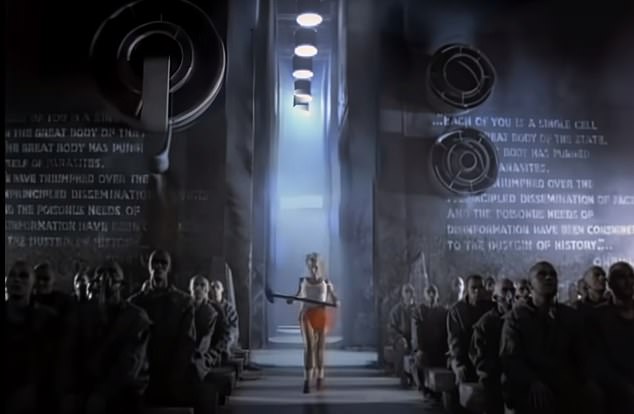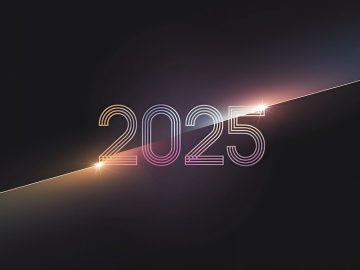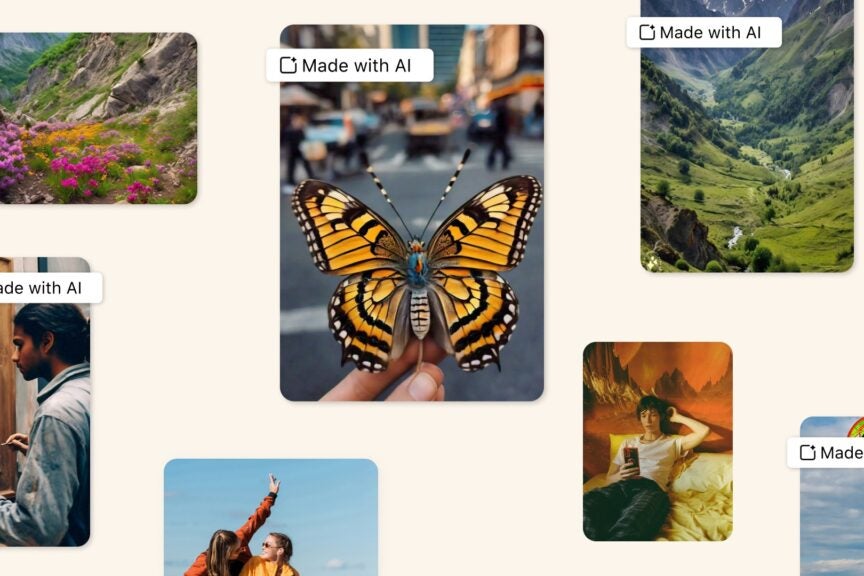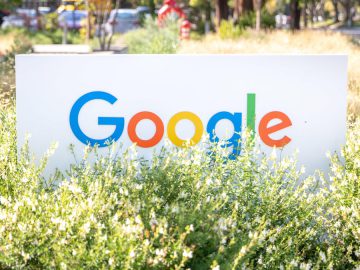In the cut-throat world of US technology, there has been no rivalry greater than that between Apple and Microsoft.
This almost mythological enmity dates back to the early 1980s, when underdog Apple waged a ferocious battle with Microsoft for dominance in the personal computer market, portraying the far larger company as a copycat.
Apple’s celebrated 1984 TV advertisement, directed by Ridley Scott, depicted a sledgehammer attack against an Orwellian Big Brother monopolist. Microsoft was clearly the target.
The idea of a partnership between the two would have seemed outlandish.
However, these tech behemoths appear now to be making up.
Both started out in the mid-1970s, a fact that may surprise young tech devotees. Apple was founded in 1976 by Steve Jobs, Steve Wozniak and Ronald Wayne. Microsoft was set up a year earlier by Bill Gates and Paul Allen.
Apple’s celebrated 1984 TV advertisement, directed by Ridley Scott, depicted an attack against an Orwellian Big Brother monopolist, with Microsoft clearly the target
Unsurprisingly, the driver behind this new spirit of co-operation is the generative artificial intelligence (AI) revolution and the pressing need to prove that the billions of investors’ pounds and dollars being splashed out on this groundbreaking innovation will actually reap a return.
Apple has linked with OpenAI, the company behind the ChatGPT AI system.
Microsoft has already invested $13bn in OpenAI, so the move creates a link between Apple and its old sparring partner.
Apple Intelligence, scheduled to launch in the autumn, will put generative AI – which can create new content – straight into newer iPhone handsets.
This will enable the production of more sophisticated text and visual content, including more expressive emojis and proof-reading tools that can rewrite text and alter the tone according to whether you want it to be professional or informal.
Although much of Apple Intelligence will be powered by the company’s own technologies, the partnership with OpenAI is a major move.
It will beef up Apple’s AI offer significantly by enabling Siri, the voice assistant on the iPhone, to answer more complex questions, for instance.
OpenAI’s ChatGPT will in future be able to kick in if Siri is stumped.
Sam Altman, the CEO and founder of OpenAI, says the Apple Intelligence joint venture aligns with his company’s vision to ‘make advanced AI accessible to everyone’.
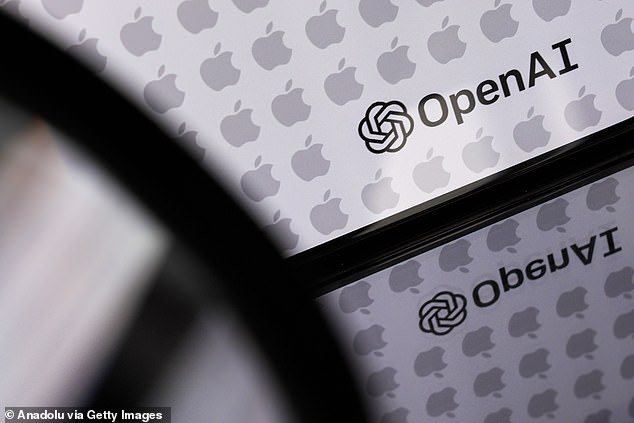
Apple has linked with OpenAI, the company behind the ChatGPT AI system, while Microsoft has invested $13bn in the software, creating a link between the two old sparring partners
Apple Intelligence should be good for iPhone sales. Customers will only be able to make full use of the tools if they have an iPhone 15 Pro model or better. About 270 million people worldwide have not upgraded their phones for a while and may be tempted to do so in order to gain such features.
The rapprochement between the erstwhile adversaries has triggered huge speculation in tech circles.
Does the alliance mean Microsoft – finally – sees Apple’s many millions of iPhone customers as an opportunity rather than a threat?
Or does it signify Apple lost its awesome talent for innovation and is now forced to go into partnerships with third parties?
Focus on the relationship between the two tech titans has intensified in the wake of slightly disappointing results posted by Microsoft this week.
These showed lower-than-expected growth from cloud computing – the infrastructure companies need to put in place in order to incorporate AI into every aspect of their business.
And the soul-searching comes as worries are mounting over the valuations of the Magnificent Seven – Apple, Microsoft, Tesla, Nvidia, Amazon, Google’s owner Alphabet and Facebook parent Meta.
The shares of the Magnificent Seven were propelled into the stratosphere by the conviction that their generative AI gamble would yield fortunes. Doubts are now simmering over how quickly these riches will arrive.
What does it mean for me?
Though you may not own shares in Apple, Microsoft or any other of the Magnificent Seven directly, many UK private investors will be a holder through their Isa, pension and through investment trusts and funds. Millions of Britons, therefore, have a personal interest in the truce between Apple and Microsoft.
So we should be observing this entente: it looks cordiale, but will it last? And what might it mean for their shares?
Stashing some money away in Apple and Microsoft shares makes sense, provided you are realistic.
The price gains of 2023 are unlikely be repeated. The major online platforms – AJ Bell, Hargreaves Lansdown and Interactive Investor – enable to buy and sell shares and place them in an Isa.
Should I take a bite of Apple?
The world’s love affair with Apple’s sleek devices, designed by the British creative genius Jony Ive, is one of the great romances of the 21st Century.
Veteran investor Warren Buffett argues that Apple shares are not a bet on technology, ‘but on a company that’s beloved by customers’.
His leviathan Berkshire Hathaway fund has a substantial holding in Apple based on the principle that the business has ‘wide moat’ – a dominant market position protecting the brand in the same way that a moat filled with water shields a castle.
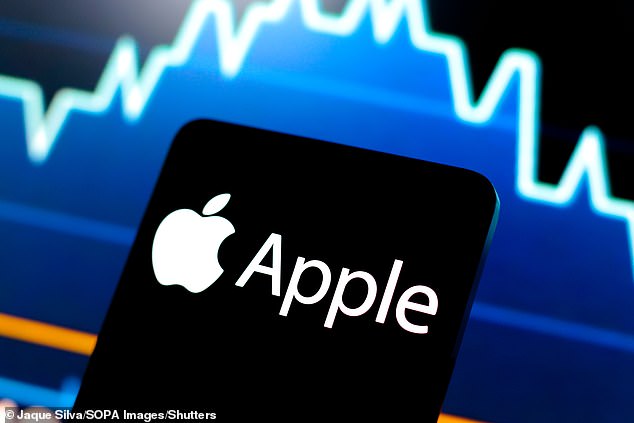
Tim Cook, Apple’s CEO, argues ‘all of us have to make sure we are using AI in a way that is for the benefit of humanity, not to the detriment of humanity’
The deal with OpenAI has breathed new life into Apple shares.
They had fallen back amid fears consumers were at a ‘peak iPhone’ moment and that Apple was no longer an all-conquering creative force.
The original Mac computers changed the world in the 1980s and 1990s, and the iPod and iPhone created an even bigger splash.
However, the Apple Watch could be described as a modest success at best. Far less popular than the iPhone, it is more an optional add-on than a distinct product line.
The much-hyped Apple Vision Pro augmented reality headset has generally been regarded as a flop. Its eye-watering starting price of £3,499 has kept it in the realm of being a niche product and the reviews have been mixed at best.
Yet there are also reasons to be cheerful. Tim Cook, Apple’s CEO, argues ‘all of us have to make sure we are using AI in a way that is for the benefit of humanity, not to the detriment of humanity’. This suggests he knows how to take a long-term view.
Apple is also sitting on a £50bn pile of cash thanks to the hefty profit margins on iPhones.
That cash mountain opens the door to two things investors love: big dividend payouts and share buybacks. When a company buys its own shares, this reduces supply, which in turn can push their price up.
Apple’s diversification into streaming is another source of confidence. Apple+ – whose dramas include British spy thriller Slow Horses – may be far behind the market leader Netflix. But Apple+ has one key advantage over Netflix – the ability to cross-sell streaming services to iPhone, iPad and Mac owners.
The hope of bumper iPhone sales has boosted Apple’s value to $3.35trillion (£2.7trillion). This is more than all the companies in the UK blue chip FTSE 100 index which are together worth about £2.1trillion.
Apple and Microsoft may not be kindred spirits, but they do have something in common: strained relations with regulators in America and Europe. Politicians on both sides of the Atlantic are keen to curb the power of Big Tech.
Apple was recently admonished by the European Commission over claims its App Store has been stifling competition unfairly.
The sagacious Buffett seems entirely happy to continue to own Apple and this is also the view of most analysts, with Goldman Sachs being the most enthusiastic advocate of the stock.
The shares currently stand at $218. The average analysts target price is $226, but Goldman has revised its target upwards to $265.
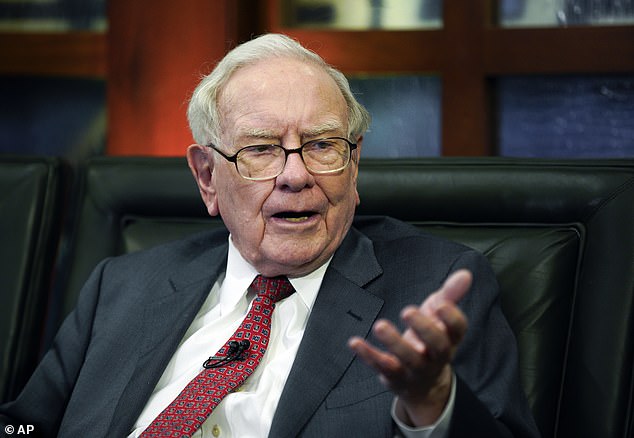
Veteran investor Warren Buffett argues that Apple shares are not a bet on technology, ‘but on a company that’s beloved by customers’, giving it a ‘wide moat’ in the stock market
Can I make money on Microsoft?
Microsoft which is valued at $3.11trillion – £2.4trillion – does not inspire the same level of affection as Apple.
Earlier this year, though, one analyst did describe the company’s impressive figures for the second quarter as ‘a masterpiece that should be hung in the Louvre’.
Despite such effusions, the gains of last year – when shares soared by 53pc – are unlikely to be repeated this year. Microsoft’s relations with its users are somewhat strained in the wake of the global meltdown caused by the CrowdStrike glitch.
This disabled 8.5 million computers running the Microsoft Windows operating system.
The Windows product is one of Microsoft’s largest revenue streams. Other key activities include gaming – Microsoft owns Xbox and Activision Blizzard, the company behind the Call Of Duty franchise.
Azure, the cloud computing platform, is seen as the engine of growth. Satya Nadella, Microsoft’s CEO, has spent lavishly on this arm of the group. But this week’s results mean there will be more questions about this strategy in the weeks to come.
Nadella urges employees to be constantly adapting. His catchphrase is: ‘Don’t be a know-it-all, be a learn-it-all.’
That philosophy may ensure Microsoft continues to be regarded as the member of the Magnificent Seven posse most likely to make serious money from AI.
This is thanks to its investment in OpenAI, but also its ability to combine AI with its Microsoft 365 office products.
Analysts at JP Morgan say that this is a ‘tailwind that will only build over time’.
Its Copilot AI service is already proving hugely popular. This carries out laborious and time-consuming processes such as summarising scores of emails into bullet points. Office workers armed with Copilot are reported to finish their tasks almost 30 per cent faster.
AI is also boosting the effectiveness of GitHub, Microsoft’s platform for software developers.
Microsoft is in hot water with the EU over its ‘investment’ in OpenAI, which some consider to be a merger by any other name.
There is long-running tension between Microsoft and the UK’s Competitions and Market Authority (CMA). The watchdog is currently investigating the dominance of Microsoft and Amazon in the cloud computing market.
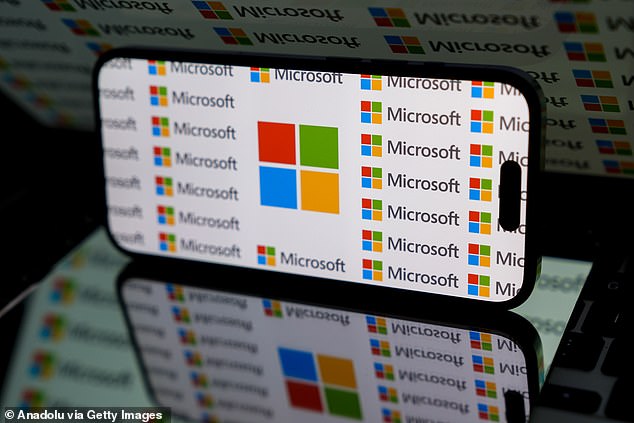
One expert says if you have to pick just one tech company to invest in, make it Microsoft as it is a ‘one-stop shop bet on every aspect of the AI revolution’
Microsoft has accused the CMA of making a ‘misleading analysis’ of the situation and threatened that it will reduce its investment in the UK.
The CMA is also looking into the OpenAI deal and the $1.3bn in funding given to US start-up Inflection AI, which could also be seen as a merger.
Most analysts rate Microsoft a buy, despite the results from cloud computing, with JP Morgan reinstating its view that the shares were worth a bet immediately after the figures. The shares currently stand at $422, but JP Morgan has set a target of $470. The average target price is $498, with one optimist believing that $600 is a possibility for those who are patient.
As Ben Barringer, of Quilter Cheviot, emphasises: ‘AI integration into business processes takes time.’ This will be reassuring news for anyone with money in the popular Fundsmith fund, where Microsoft is one of the major holdings.
Which should I choose?
It makes sense, if you are a tech fan, to invest in both. But Barringer says if you have to pick just one, make it Microsoft. Why? It is a ‘one-stop shop bet on every aspect of the AI revolution’.
Apple, though it has notched up prodigious achievements and innovations, could be considered a luxury goods supplier, due to the appeal of its designs, rather than a tech company. Shares in some companies selling luxe products, including Burberry, LVMH and Tiffany have been hit by fears wealthy shoppers may tighten their belts.
Some links in this article may be affiliate links. If you click on them we may earn a small commission. That helps us fund This Is Money, and keep it free to use. We do not write articles to promote products. We do not allow any commercial relationship to affect our editorial independence.

